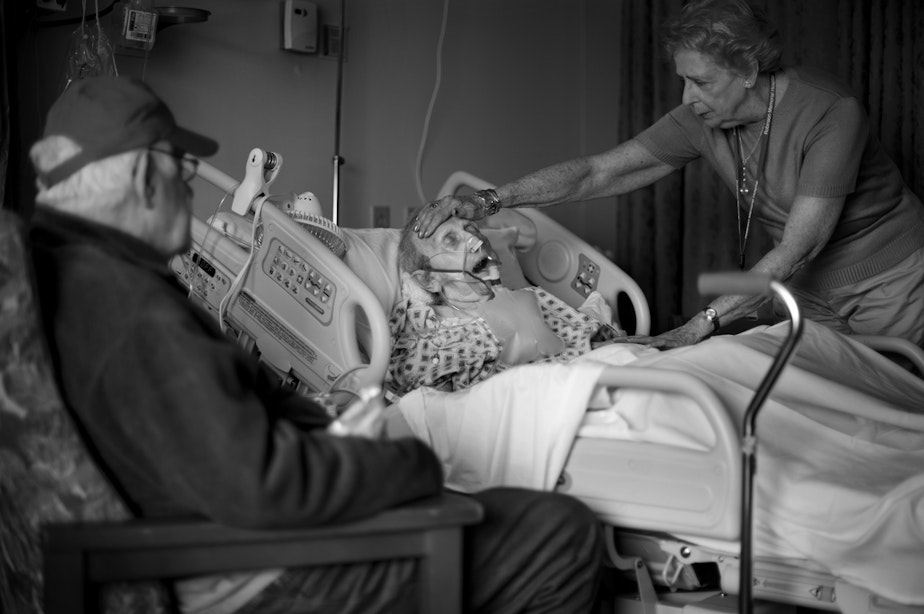Dying Patients Don’t Always Get Support They Need, Study Says

Dying patients in hospice and nursing homes aren’t always getting the care they need during the last days of their lives.
That’s according to a study co-authored by Dr. Joan Teno, a palliative care specialist and University of Washington professor of medicine.
Teno and her colleagues analyzed Medicare data for the last two days of life of patients, to see if they received any hospice visit. They found that one in eight dying patients does not get a visit. Black patients were less likely than whites to be visited.
More from KUOW: When A 14-Year-Old Chooses To Die Because Of Religion, Can Anyone Stop Him?
“In the last days of life pain and other symptoms are exacerbated,” Teno said.
In those last days of life, visits from hospice staff are crucial, for patients to make sure they’re comfortable and for family members who caring for their loved ones.
“It’s important that the hospice professional staff coach that family member on how to give medicines, how to move the patient, how to deal with symptoms such as agitation, or shortness of breath,” Teno continued.
But that doesn’t always happen.
More from KUOW: Where Do Seattle-Area Crows Go At Night?
It’s no surprise that when Teno heard from grieving families about their experiences, many said they didn’t receive adequate training or emotional support. Teno quoted one family member: “I, being the caregiver, I was scared to death. I mean, I’m not a nurse, I don’t have that experience.”
The study also showed variations by state. Alaska and Washington state were among the worst for visits.
In January, Medicare started offering financial incentives to professional providers to improve care for dying patients. Providers are also required to interview families about the quality of care they received.
Teno’s findings is published in this month’s JAMA, Internal Medicine.
Flickr photo by KristinBauer.photography ( CC BY-NC-ND 2.0).
More From KUOW: Rare Photos Of Black Seattle Unearthed

